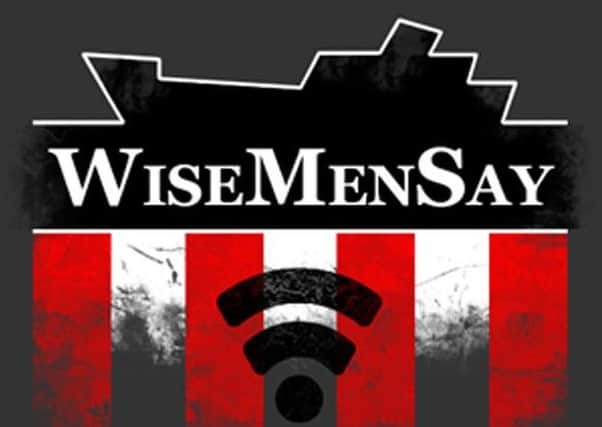Wise Men Say: Another seismic week in the history of Sunderland


The news of Chris Coleman’s departure around lunchtime on Sunday registered barely a tremor.
We’ve had so many managerial changes that the only feeling I had was ambivalence.
Advertisement
Hide AdAdvertisement
Hide AdThe Welshman was set an impossible task, given that he was working with a barely-there budget and a squad of players ill-equipped to deal with the rigours of Championship football.
It was no surprise that he couldn’t turn it around, and less surprising still that, by the end of the weekend, he was out of a job.
But, in what felt like moments later, his ousting felt small-fry in comparison to the news that Stewart Donald was to lead a consortium of investors to buy out Ellis Short’s stake in the club. That was a new one.
In my lifetime, we’ve only had a handful of owners.
I was too young to remember Sir Tom Cowie’s reign, other than older relatives’ hackles going up at the very mention of Lawrie McMenemy – so Bob Murray was the first chairman I recall.
Advertisement
Hide AdAdvertisement
Hide AdEvery change of ownership or administration thereafter felt significant.
Niall Quinn riding in like a white knight to oust the beleaguered Murray heralded one of the most thrilling times to be a Sunderland fan, while Short’s buyout of the Drumaville consortium’s shares gave us all hope that, with the billionaire’s guidance, we could be a major player at the top table of English football.
In my time supporting Sunderland, there have been massive moments where I felt – even at the time – that this will prove to be significant in our history.
The winter of 2000-2001, when we were second in the Premier League but needed an injection of quality into the squad to keep us competitive.
Advertisement
Hide AdAdvertisement
Hide AdThat didn’t happen and we limped to seventh, then 17th the next season, then relegated with a then-lowest Premier League points tally of 19 points in 2003.
We ‘beat’ that points total in 2006, plunging into the Championship with 15 points to our name.
Protests followed against Murray, angry mobs forming outside the ground. Murray stayed away from Wearside while Quinn assembled a group of Irish businessmen that would change our fortunes forever.
That brought the appointment of Roy Keane, the domination of that August transfer deadline day, building a team to be proud of, filling the ground again, getting back in the Premier League.
Advertisement
Hide AdAdvertisement
Hide AdThen there was the failure by Steve Bruce to rebuild a team that had managed to finish 10th in 2010, which had featured Simon Mignolet, Jordan Henderson, Bolo Zenden, Sulley Muntari, John Mensah, Danny Welbeck, Asamoah Gyan and Darren Bent.
After that, we had Gus Poyet playing a weakened team at Hull City in the FA Cup quarter-final, a week after our Capital One Cup final defeat to Manchester City.
This week will be right up there in terms of significance.
This could be the start of the resurgence of this great club under a new chairman with bright ideas.
But I can’t help thinking that another disaster is around the corner. It wouldn’t be Sunderland if we didn’t think like that, would it?
* The Wise Men Say podcast is available from every Monday, with SAFC debate from a variety of guests. You can stream it direct from wisemensay.co.uk or subscribe to it on iTunes